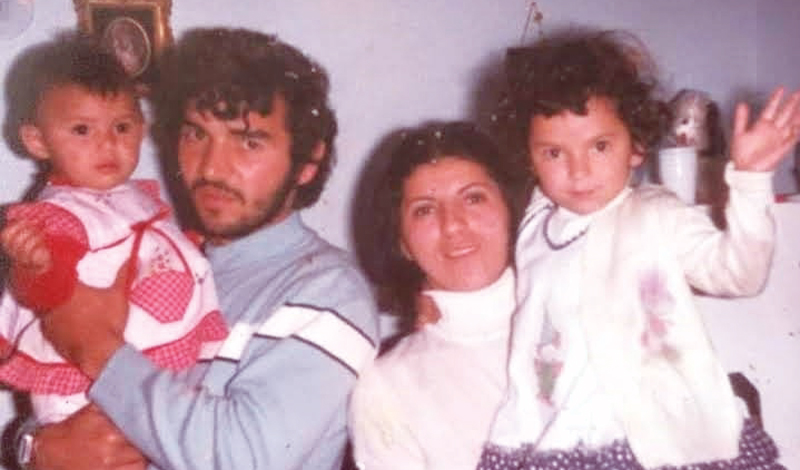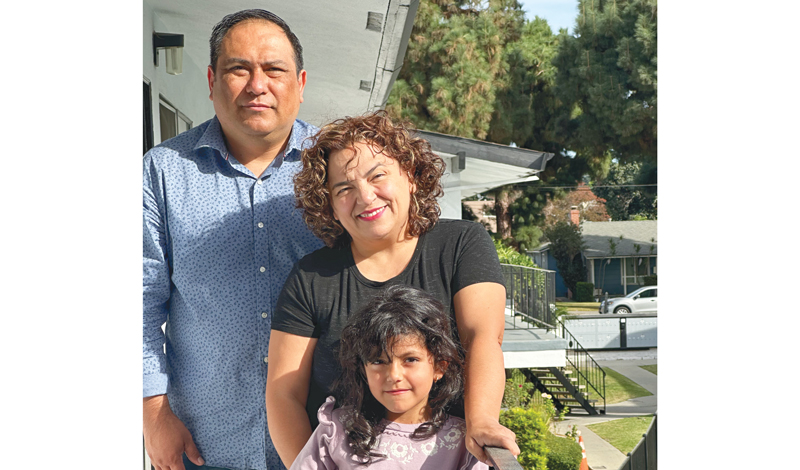by Mireya Castro
Whittier, Calif.
My father returned from his year in prison a private man, cagey even at home, maybe especially at home.
He’d had a good job with a union, which one day tasked him to organize a party, a networking event, where several men got especially drunk and began breaking tables and chairs. My father begged them to stop and was attacked. Protecting himself, he struck one very well-connected man and for this did over a year in prison. The sentence took more than a year of his life—it took his future. Colombia held few opportunities, and almost none to a person with a record. None, that is, that were legal.
Only those he’d met in prison stayed in touch, reminding him, whenever they spoke, of the fact of his family—of three mouths to feed at home. His prison “friends” were the ones, the only ones, to offer him work. In secret, he took it. To minimize the risk to his family, he kept us at arm’s length. Many times, I’m told, he tried to leave that work, but each time was brought back by need or threat. He spoke little, but told us often, “Work hard. Live honorably. Be honest.” If he could not live out his dream, he hoped and prayed his children would.
By my early 20s, I was, doing administrative work for a university in Bogotá. Such enviable work, with a good salary, had made my father proud. However, it hadn’t made me happy. Far from home, I was depressed, lonely amid the bustle of the capital. I had one co-worker who was always beaming. “Why?” I asked over brunch, and she penned her secret on a napkin: Nam-myoho-renge-kyo.
As I began chanting, I realized that no job would make me happy. Happiness came from within. I wanted to share this secret with my family.
In October 2003, I received the Gohonzon and moved home, where my sister quickly joined me in chanting for our father’s happiness and freedom from work that robbed him of it. In our mind’s eye, we began to see this person, this father we’d never met, a happy man, and began to welcome him home.
We no longer believed his disguise—the stern, worn look he wore coming home each day. We flew to him with kisses, taking coat and hat, seating him on the couch and taking off his shoes. All this he accepted with a startled smile that slowly spread so that he was fairly beaming by the time we presented him with dinner. The old walls he’d raised came tumbling down, and for two golden months, we chatted, snuggled, watched TV and ate our meals together. That winter, I overheard him tell my mother he was through with “those people,” the ones he’d met in prison.
“We’ll manage somehow,” he said. But, he must have told “those people,” too; the next day, stepping outside his corner grocers, he was shot and killed.
A silver haired woman was the first to arrive the morning of his funeral. A pioneer member, she led me gently by the hand to my father’s casket. “For his happiness,” she said. As other trickled in, the room filled with the sound of daimoku.
Coming home, I put these words of Nichiren Daishonin on my altar: “Life flashes by in but a moment. No matter how many terrible enemies you may encounter, banish all fears and never think of backsliding. Even if someone were to cut off our heads with a saw, impale our bodies with lances, or shackle our feet and bore them through with a gimlet, as long as we are alive, we must keep chanting Nam-myoho-renge-kyo, Nam-myoho-renge-kyo” (“On Practicing the Buddha’s Teachings,” The Writings of Nichiren Daishonin, vol. 1, p. 395).

I realized how fortunate I was. I’d made a vow to have a happy family, and for a few months, I had. I’d made a vow that my father would be free of the work he hated, and for a day, he was.
The family I’d known in those few months changed me forever. In the wake of my father’s passing, I made a vow to him and to Ikeda Sensei to fight forever on the side of the people and raise a kosen-rufu family of my own.
Within a year, I was working for a union in Bogotá, providing services to those profoundly in need. It would take me some time longer to find my kosen-rufu partner, but I did, in 2016. Two years later, I gave birth to our daughter, Ana Victoria, who was showered with prayers for her health and happiness. Soon after, civil unrest engulfed the country.
Since the start of the pandemic, demonstrations addressing socio-economic inequality grew steadily, exploding in September 2020.
On behalf of the union, I began to organize demonstrations. Every morning, I woke early and chanted with my husband, our daughter in one of our laps. I worked from morning to evening, while my husband worked from evening to midnight selling arepas from our front step. Each came with a conversation, however brief, about Nam-myoho-renge-kyo.
In the winter of 2022, bounding up our front steps, I was brought up short by a solitary letter on the welcome mat. “A mistake,” my husband said firmly. “They got the wrong house.” The letter, open on the kitchen table, advised I stop attending the marches or else. The following January, we received another, more strongly worded letter. Another mistake, we decided. But in June, we got our third, this one a death threat with personal details and a photo of our front door.
We sat down together and chanted strongly for the protection of our family. Again, I read the passage on my altar, the same one I’d placed there since my father’s murder.
I realized then that we were already receiving protection. That I was already changing my family’s karma; instead of mercenaries, they’d sent letters.
We summoned the courage to report this to the authorities but realized help was not forthcoming. In June 2021, we moved to Georgia, where my husband’s sister lives, and applied for asylum. We connected immediately with our local SGI district, where, so far from home, we were embraced as family.
Receiving asylum, we moved to California in November 2023. There again, we found that transcending element of the SGI—the sweetness of the people.
Today, my husband drives for Uber, a big stack of Nam-myoho-renge-kyo cards in his glove compartment. He only knows the basics: Thank you! Good morning! Goodbye! Personally, I’m going for it—being a new group women’s leader gives me many chances to work on my English!
Today, I have the happy family I always wanted. My greatest wish is that our daughter study hard and attend Soka University of America, that she grow up to become a strong person who fights for kosen-rufu, who stands always on the side of the people.
You are reading {{ meterCount }} of {{ meterMax }} free premium articles

